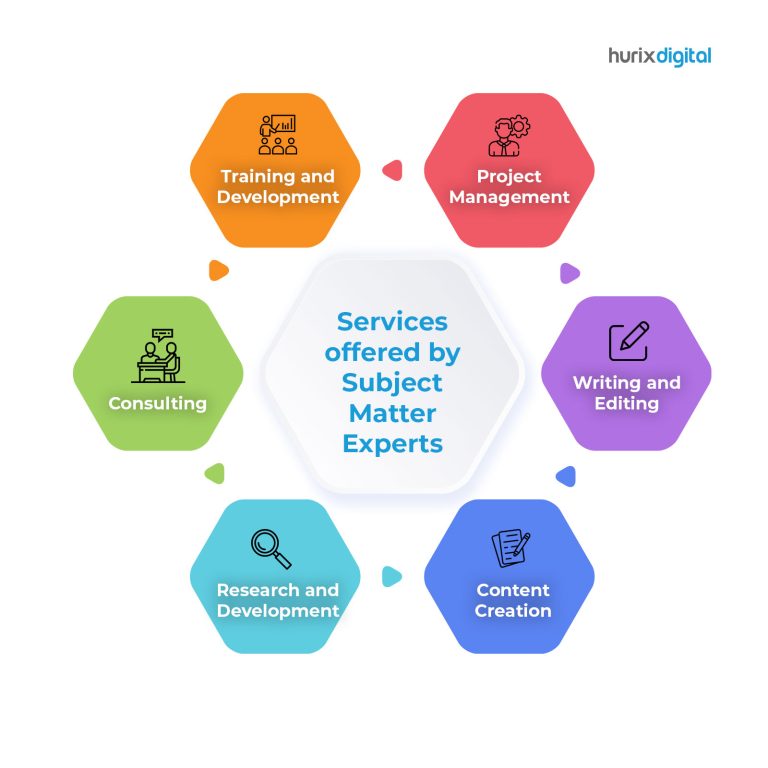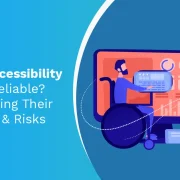
What is a Subject Matter Expert? Exploring the Role and Responsibilities
While SME can also stand for “Subject Matter Expert,” in the context of business and economics, SME most commonly refers to “Small and Medium-sized Enterprises.”
The term “Subject Matter Expert” is often used in professional and technical contexts to refer to someone who has specialized knowledge and expertise in a particular area or field. For example, in software development, an SME might be an expert in a particular programming language or technology.
Table of Contents:
- What is a subject matter expert?
- How do subject matter experts work?
- How to become a subject matter expert?
- Example SME scenarios
- Understanding “Subject Matter Expert”
- Services offered by Subject Matter Experts
The term SME as “Small and Medium-sized Enterprises” is used to refer to businesses that are smaller in size and revenue compared to large corporations. The distinction between these two definitions of SME is essential, as they refer to different things and contexts.
What is a subject matter expert?
A subject matter expert (SME) is an individual who possesses significant expertise, knowledge, and experience in a particular field or subject area. SMEs are recognized as authorities and possess a deep understanding of the subject matter, often surpassing the knowledge of average practitioners in that field.
How do subject matter experts work?
Subject matter specialists typically contribute to projects or initiatives by providing their specialized knowledge and insights.
The role of subject matter experts is to collaborate with teams or stakeholders to offer guidance, solve complex problems, make informed decisions, and ensure the accuracy and quality of work within their area of expertise. SMEs may be involved in various activities such as advising, training, content creation, quality assurance, and decision-making processes.
How to become a subject matter expert?
Becoming a subject matter expert typically involves the following steps:
1. Choose a specific field or subject area: Select a domain where you have a genuine passion and interest in acquiring deep knowledge.
2. Pursue education and training: Acquire formal education, certifications, or specialized training in the chosen field to gain a strong foundational understanding.
3. Gain practical experience: Apply your knowledge in real-world scenarios through internships, job roles, or practical projects to build hands-on experience and expertise.
4. Continuously learn and stay updated: Stay current with the latest developments, trends, research, and best practices in your field by reading books, attending conferences, participating in webinars, and engaging with professional communities.
5. Share knowledge and contribute: Actively share your expertise by writing articles, speaking at conferences, mentoring others, participating in online forums, or collaborating on projects, which helps establish your reputation as an authority in your field.
Example SME scenarios:
1. In an IT company, a software architect with extensive experience in designing complex systems may act as an SME, guiding and providing technical expertise to development teams.
2. In a healthcare organization, a senior physician specialized in a particular medical domain may serve as an SME, advising on challenging cases, providing training to junior doctors, and participating in research initiatives.
3. In a legal firm, a lawyer with in-depth knowledge of a specific area of law, such as intellectual property or corporate law, may be considered an SME, providing guidance to colleagues and clients on complex legal matters.
SME limitations:
1. Narrow perspective: SMEs may have extensive knowledge in their specific area but may lack broader insights or expertise outside their domain.
2. Difficulty in communicating complex ideas: SMEs may find it challenging to explain concepts or ideas to non-experts due to the technical nature of their knowledge.
3. Limited availability: SMEs are often busy professionals with multiple responsibilities, which can make their availability for consultation or collaboration limited.
4. Bias or resistance to change: SMEs may be deeply rooted in traditional practices or established methods, making it difficult for them to adapt to new technologies or approaches.
While subject matter experts offer valuable contributions, it’s important to leverage their expertise alongside other perspectives and to address any limitations through effective communication, collaboration, and a holistic approach to problem-solving.
Understanding “Subject Matter Expert”
The term “Subject Matter Expert” (SME) generally refers to a person who has in-depth knowledge, expertise, and experience in a specific area or field. SMEs are typically sought out for their specialized knowledge and experience to provide insights, guidance, and solutions in their area of expertise.
SMEs play a crucial role in various industries, including technology, science, engineering, medicine, law, and business, to name a few. They are often relied upon to provide advice, solve complex problems, and contribute to the development of new products and services.
In the context of software development, SMEs can provide guidance and expertise in areas such as programming languages, software frameworks, design patterns, and best practices. They can also offer insights into industry trends, emerging technologies, and new developments in the field.
Overall, SMEs are highly valued for their specialized knowledge and expertise and play a vital role in various industries and fields.
Services offered by Subject Matter Experts

Subject Matter Experts (SMEs) can offer a variety of services depending on their area of expertise and the industry or sector they work in. Here are some examples of services that SMEs may offer:
1. Training and Development
SMEs can provide training and development services to individuals or organizations, helping them to build their skills and knowledge in a specific subject area. For example, an SME in data analysis may offer training in statistical analysis or data visualization.
2. Consulting
SMEs can work as consultants, providing advice and expertise to individuals or organizations. For example, an SME in cybersecurity may offer consulting services to companies to help them improve their security systems and protocols.
3. Research and Development
SMEs can work in research and development, helping organizations to develop new products or services. For example, an SME in pharmaceuticals may work on the development of new drugs or medical devices.
4. Content Creation
SMEs can create content for different purposes, such as educational materials, marketing materials, or technical documentation. For example, an SME in software development may create technical manuals or user guides.
5. Writing and Editing
SMEs can also work as writers or editors, producing written content that requires specialized knowledge in a particular subject area. For example, an SME in finance may write articles or reports on financial markets or investment strategies.
6. Project Management
SMEs can also work in project management, helping organizations to manage complex projects that require specialized knowledge in a particular subject area. For example, an SME in construction management may work on large-scale construction projects, providing expertise in areas such as project planning, scheduling, and budgeting.
Overall, SMEs can offer a wide range of services depending on their area of expertise and the needs of their clients. They play a vital role in helping organizations and individuals to access specialized knowledge and skills, which can help them to achieve their goals and succeed in their respective fields.
Frequently Asked Questions (FAQs)
1. How can one become a subject matter expert?
A. To become an SME, follow these steps: choose a specific field, pursue education and training, gain practical experience, stay updated, and actively share knowledge through various means.
2. What limitations do subject matter experts have?
A. SMEs might have a narrow perspective, find it difficult to communicate complex ideas to non-experts, have limited availability for consultation, and could show resistance to change.
3. How do SMEs contribute to content creation?
A. SMEs can create educational materials, marketing content, or technical documentation, like an SME in software development creating technical manuals.
4. In what areas can SMEs offer project management services?
A. SMEs can provide project management expertise in specific areas, such as an SME in construction management working on large-scale construction projects.
5. What is the overall role of SMEs in helping organizations?
A. SMEs provide specialized knowledge and skills through a variety of services, aiding organizations and individuals in achieving their goals and succeeding in their respective fields.

Vice President & SBU Head –
Delivery at Hurix Technology, based in Mumbai. With extensive experience leading delivery and technology teams, he excels at scaling operations, optimizing workflows, and ensuring top-tier service quality. Ravi drives cross-functional collaboration to deliver robust digital learning solutions and client satisfaction








